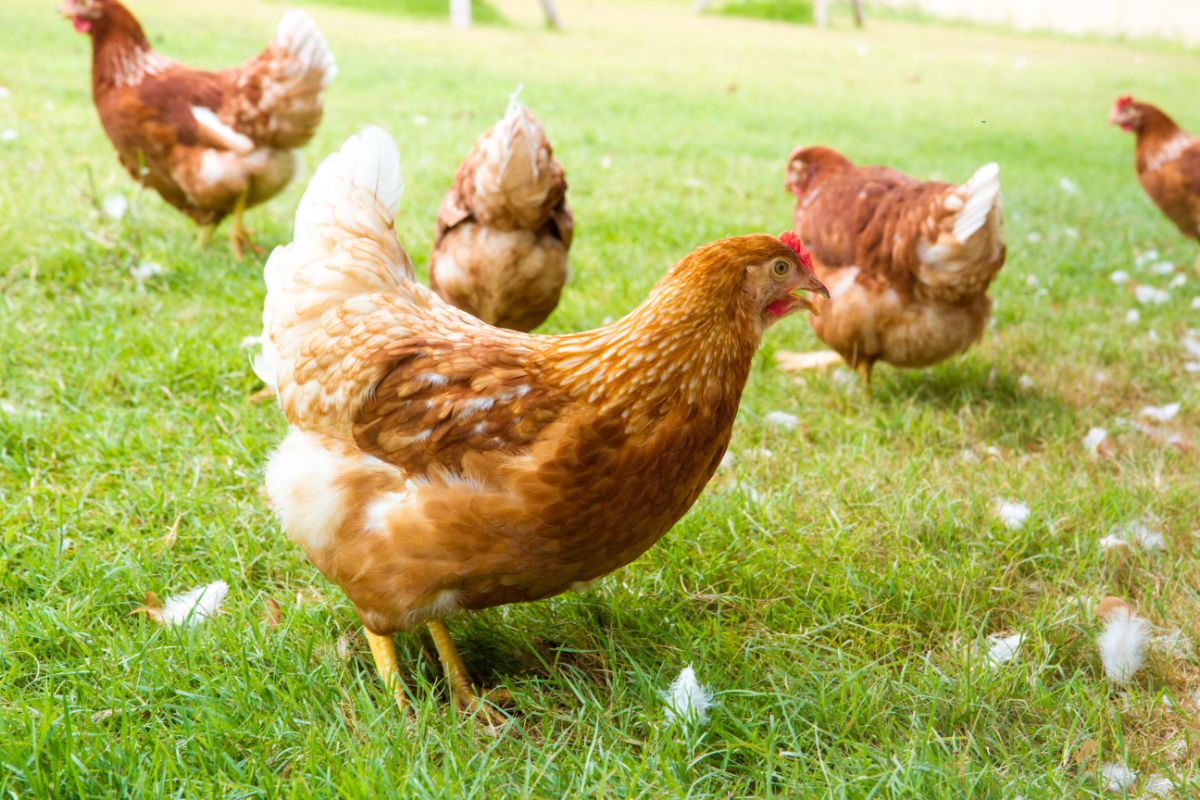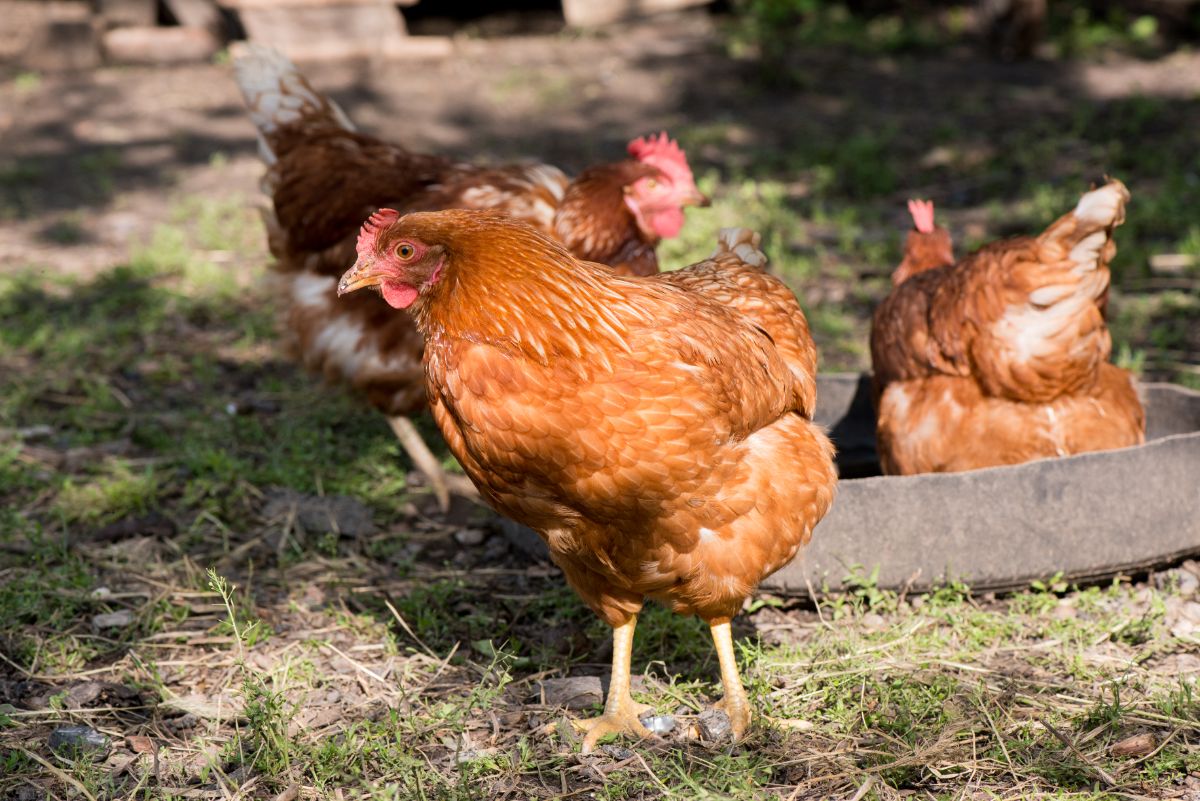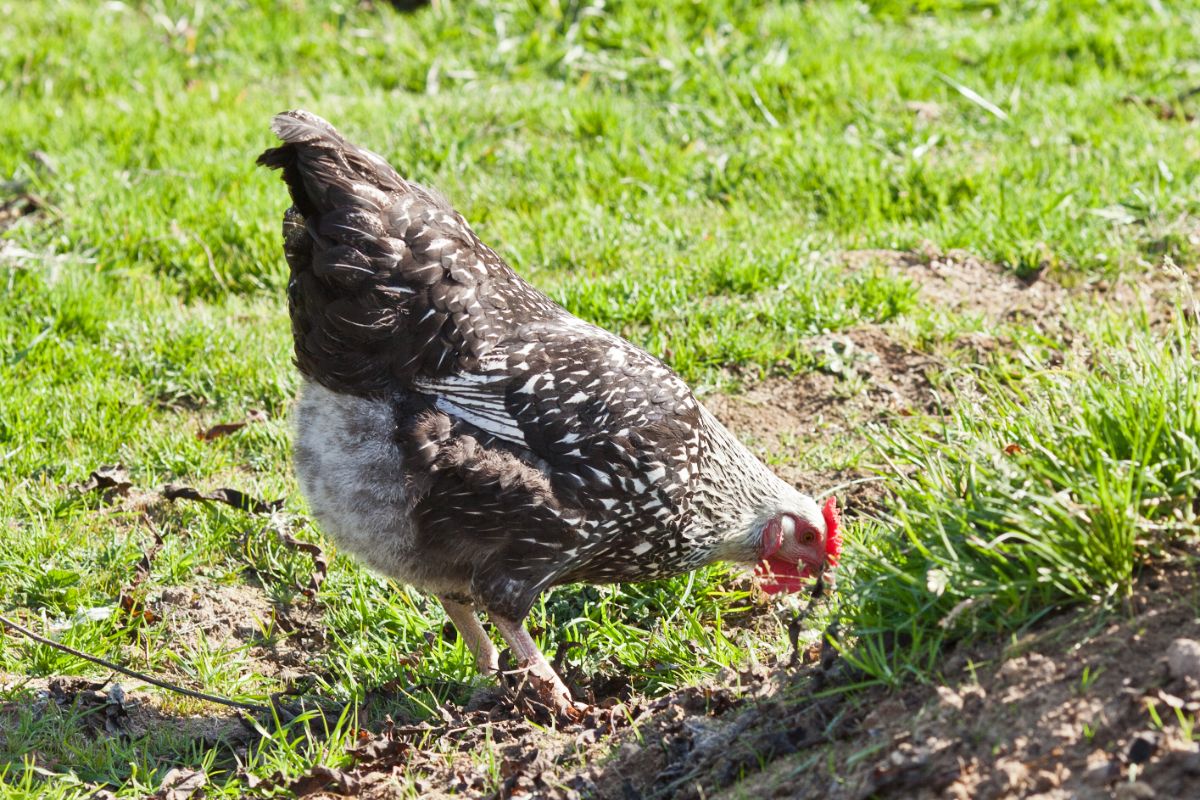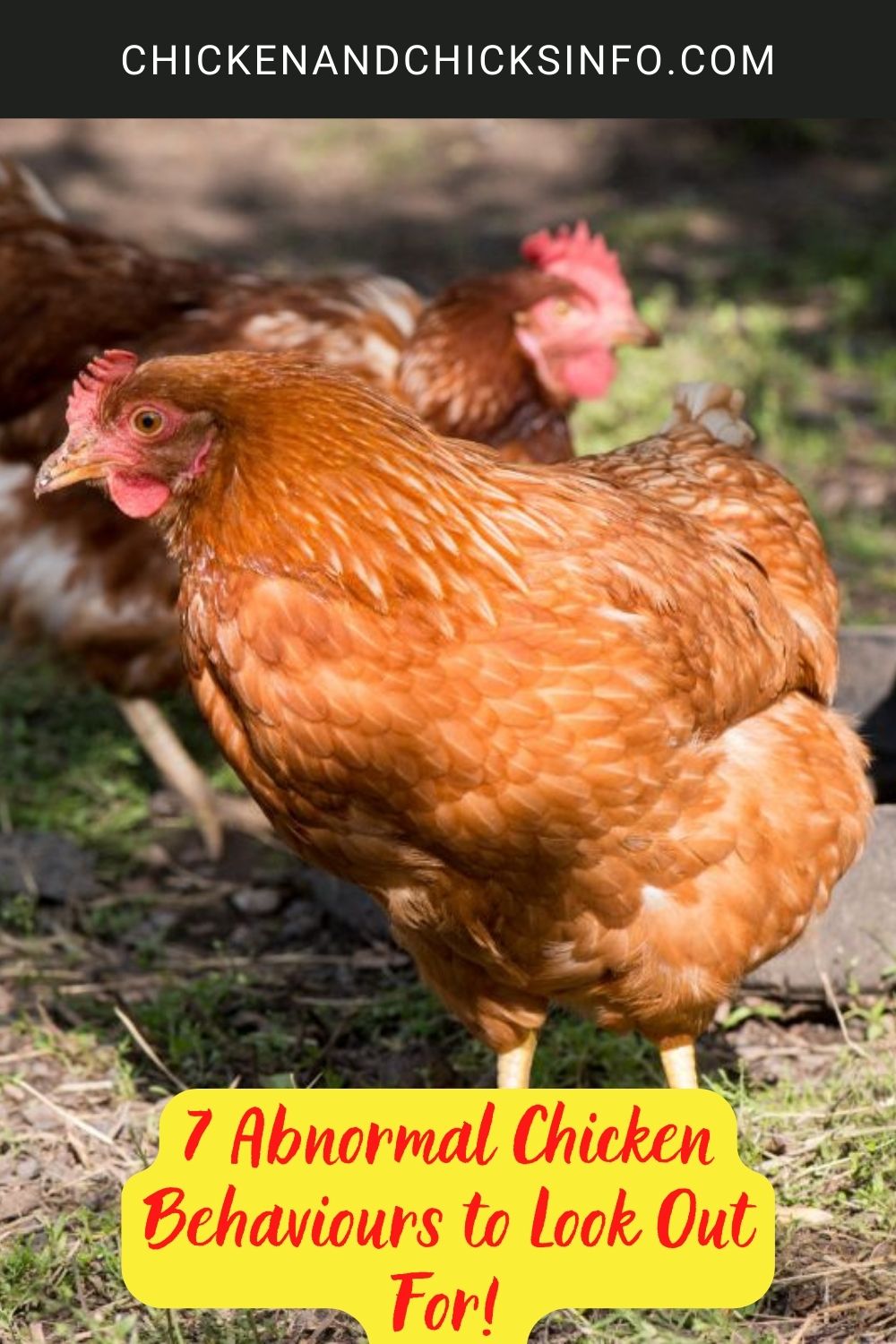
Have you been spotting abnormal chicken behaviors among your flock?
If so, it's probably an indication that there is something wrong with one or more of your chickens or your flock hierarchy.
Here is a look at some of the common abnormal behaviors chickens display and what it means:
Jump to:
7 Abnormal Chicken Behaviours that Give Cause for Concern
Aggression
Aggression can show itself in many ways and is always cause for concern.
From pecking at each other and drawing blood to chasing one another and being aggressive over food - no sign of aggression within a flock is welcome.
If you can identify which chickens are being aggressive, a time out and some isolation will usually resolve the issue.
If you have a particularly aggressive hen or rooster that simply will not behave, rehoming might be the only option!
Related - How to deal with bleeding combs and beaks due to fighting.
Not Eating or Drinking

One of the first signs that something is wrong with a chicken is when they stop eating and drinking or at least are not doing so normally.
Chickens are generally voracious eaters and will usually eat anything you put in front of them and spend most of their days scratching around for edible scraps.
If a chicken stops eating and drinking, it is a sign that something is wrong and is most likely an indication of an underlying health issue.
Cannibalism
Cannibalism is another abnormal behavior that can be seen in chickens and is usually the result of boredom or stress.
It can also be a sign of a vitamin deficiency, so if you see your chickens picking at each other, it's important to get them checked out by a vet.
It's more common in commercial settings than it is in the backyard setting due to commercial environments being more cramped.
But it's something to be aware of and something you have to act on at the earliest signs.
Laying Down/Lethargic Behavior
If you notice your chickens are laying down more than usual or seem particularly lethargic, it could be a sign of disease or infection.
It's far from normal chicken behavior to lay down during the day - chickens love being active and scratching around all day, as I'm sure you're aware.
It might also be a sign that they've injured a leg, here's some information on how to identify a broken chicken leg.
Acting Scared or Anxious
If your chickens seem scared or anxious, it's usually an indication that something has happened to scare them - like a predator in the area or a loud noise.
Chickens are very susceptible to stress and it can have a serious impact on their health.
If you notice your chickens are acting scared or anxious either around you or just generally, it's important to try and resolve the issue as soon as possible.
Related - How mirrors help keep chickens entertained!
Panting

Panting is another abnormal behavior that can be seen in chickens and is usually a sign of heat stress.
Chickens don't sweat as we do, their physiology is very different from ours and they will pant to cool themselves down if they're too hot.
If you notice your chickens panting, it's important to provide them with some shade and water to help them cool down.
Keep an eye on them, if they don't seem to be improving it might mean there is an underlying health issue causing respiratory issues.
Breaking Their Own Eggs
This is an abnormal behavior that can be seen in both commercial and backyard chickens and usually indicates that the hen is not getting enough calcium.
When a hen doesn't have enough calcium, she will start to break her own eggs in the nest box in an attempt to get the calcium she needs.
Laying hens require around 4-5 grams of calcium a day to produce strong eggshells and maintain optimal health.
This sounds like a lot, but it's easy to help them achieve this by providing a good quality layer feed and supplements like oyster shells, or even dried and crushed eggshells.
How to Ensure Your Backyard Chickens Are Happy and Healthy
Chickens will display abnormal and odd behaviors from time to time.
However, the principles of raising backyard chickens so they're happy and healthy are relatively simple!
There are just a few basic things you need to do to ensure your backyard chickens are happy and healthy.
The first is to provide them with a good quality diet.
This is essential as chickens require key nutrients and minerals to maintain optimal health and lay delicious eggs.
This means feeding them a balanced diet of the right layer feed per their development, giving them access to fresh water at all times, and providing them with calcium supplements.
The second thing is to provide your chickens with a clean and spacious coop.
Chickens love to scratch around, they poop a lot, and will generally make a mess of their coop if it's not cleaned out regularly!
And lastly, make sure your chickens have plenty of space to roam around and be, well, chickens.
The more space you can give your chickens to roam free-range so they can exercise and explore, the better.
Chickens love scratching around and exploring. If you've ever witnessed a chicken finding a little bug or something interesting, you'll know how excited they can get.
Free-range chickens are happier than chickens that are caged or have their outdoors access restricted, we know this for a fact.
We also know that happier chickens are healthier chickens, and healthier chickens lay better eggs and are more rewarding to be around!
In Summary
Chickens are great fun, they're interesting creatures - and make wonderful backyard pets.
However, like all animals, they can display abnormal behaviors from time to time, and it's up to us to take notice and find out what's up.
Hopefully, this article helped highlight some of the common abnormal behaviors chickens display, and what you can do to ensure your flock is as happy and healthy as possible!





